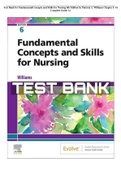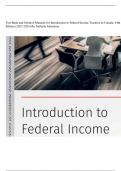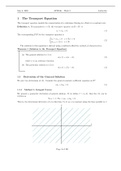Examen
DOWNLOAD THE TEST BANK FOR HUMAN RESOURCE MANAGEMENT IN PUBLIC SERVICE PARADOXES PROCESSES AND PROBLEMS 5TH EDITION BERMAN
- Cours
- Établissement
- Book
DOWNLOAD THE TEST BANK FOR HUMAN RESOURCE MANAGEMENT IN PUBLIC SERVICE PARADOXES PROCESSES AND PROBLEMS 5TH EDITION BERMAN
[Montrer plus]












